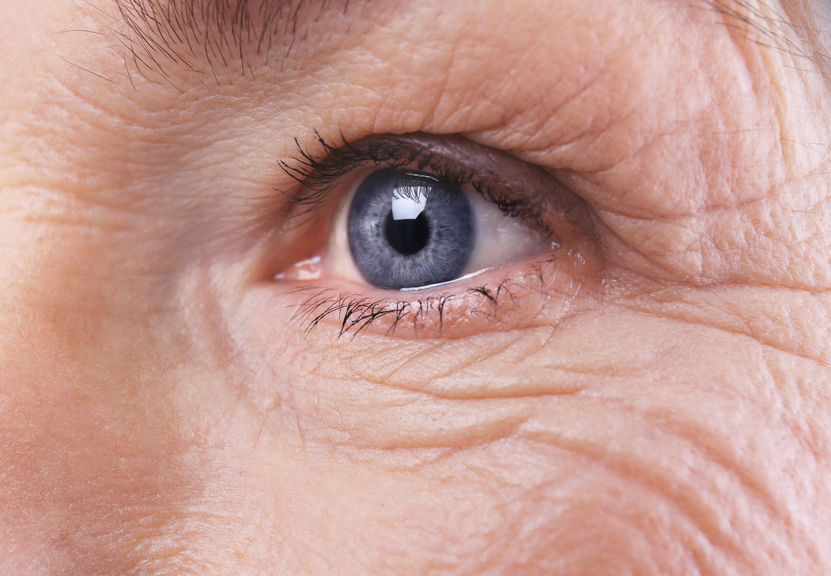September is Healthy Aging Month. Want to live an active lifestyle and without possible vision loss? Make sure you visit your eye doctor and get a comprehensive eye exam. As you age you are at a higher risk of developing age-related eye diseases. These eye diseases may have no early signs and symptoms. Your eye doctor can give you a comprehensive eye exam to help detect eye diseases in the early stages and prevent vision loss.
Below are common age-related eye diseases:
Presbyopia is a normal part of aging that becomes more apparent as people approach their 40s and 50s. As the human body ages, the lens inside the eye grows like rings on a tree. It loses its elasticity, and therefore its ability to easily change focus, making it more difficult to read smaller print.
Cataracts are one of the leading causes of visual loss in adults 55 and older.
Your eye works a lot like a camera, using a lens to focus on an image. If your camera lens became cloudy, you’d have a hard time viewing the world around you. Just like a camera, the lenses in your eyes can become cloudy as you age, making it harder for you to see.
Dry Eye is a cornea disease that results from the eye’s reduced ability to produce tears.
Types of Dry Eye:
- Aqueous tear-deficient dry eye is a disorder in which the lacrimal glands fail to produce enough of the watery component of tears to maintain a healthy eye surface.
- Inflammation of the meibomian glands. These glands make the lipid part of tears that slows evaporation and keeps the tears stable.
Age Related Macular Degeneration is a common eye condition and a leading cause of vision loss among people age 50 and older. It causes damage to the macula, a small spot near the center of the retina.
Glaucoma– Your odds of developing glaucoma increase as you get older. About 1 in 20 adults 65 and older develop glaucoma. Glaucoma is a disease that damages your eye’s optic nerve. It usually happens when fluid builds up in the front part of your eye. That extra fluid increases the pressure in your eye, damaging the optic nerve.
Leading Ophthalmologist, Neil B. Griffin, M.D., has been serving the Carolina’s for over 20 years and specializes in LASIK, cataract, and cornea surgery. He is board certified by the American board of Ophthalmology and fellowship trained in cornea and external eye disease. Dr. Neil Griffin is committed to providing world class surgical technologies and the most advanced vision diagnostics to places around Myrtle Beach, Murrells Inlet, North Myrtle Beach, North and South Carolina areas.
Griffin Eye Center offers the latest in advanced cataract surgery, with more options for Intra-Ocular Lenses (IOL) such as the Light Adjustable Lens after cataract surgery and the first in the US to use Zepto® microsurgical technology.
If you think you may have cataracts or want more information visit griffineyecenter.com.
